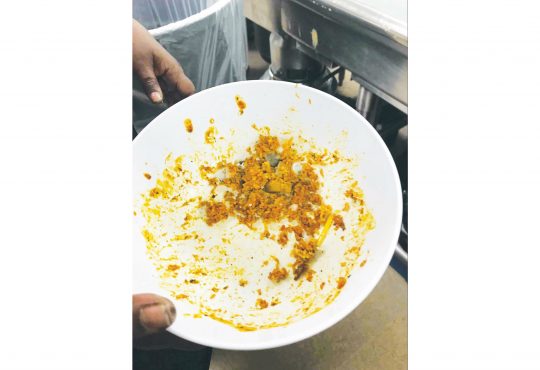The “One [of a kind]” campaign has many goals, including ensuring that Puget Sound can continue to offer grants and scholarships, diversifying research done by both students and faculty and improving our student engagement.
However, the school is failing to uphold one of the promises they make to prospective students, and it casts a shadow on the credibility of their commitment to make improvements throughout the campus community.
One of the major draws for students to the Puget Sound campus is the idea that “Loggers live green.” Unfortunately, it is pretty obvious that we do not live green, and that most Loggers don’t have much say in the matter. The sustainability efforts on campus are not where they could be if the administration were to focus more on the demands of current students rather than catering to future undergraduates.
One of the biggest issues on the Puget Sound campus is that there is still no composting option in the Student Union Building.
Yes, there is a bin available, but it primarily caters to theme row, despite the fact that not all of its residents participate in the composting program.
It would be simple for the school to emulate another establishment that has a composting system already in effect. Cornell University in New York has a user-friendly system that has been adopted by many colleges across the United States. When a student disposes of their trash, there are three available options: recycle, compost and trash.
The City of Tacoma does not offer a compost option, but there are private companies who collect compost and resell it as a garden supply.
It would be more sustainable if Puget Sound used its own compost to fertilize the meticulously groomed gardens it uses to attract potential students.
The campaign is calling for $36.5 million specifically for facilities. Some of the money has gone into building Weyerhaeuser Hall (which is LEED certified) and the Commencement Walk, with the rest slotted for a new athletics and aquatics center. The proposed extension of the Fieldhouse would cost $17.5 million, and includes a new pool and workout facilities. While improving overall attractiveness of our campus, these additions fall short of forwarding university sustainability.
There are so many different ways that the school could improve on the sustainability efforts on campus. Composting is one of these, but there are other means of improving the effect our community has on the planet.
Some steps are being taken, like implementing reusable to-go containers in the S.U.B. and shower timers in the dorm bathrooms, but if the school is willing to invest huge sums of money in general aesthetic improvement, then sustainability issues need to be a priority.
The school needs to focus more on the students they have instead of potential students. Puget Sound is a private school, but there should still be a response from the administration to current students’ desires.
If the current students are happy and satisfied with their experience, then the future students will be, too. So the question is: will the administration start to walk the green walk, or will they just keeping talking the green talk despite student protest?


